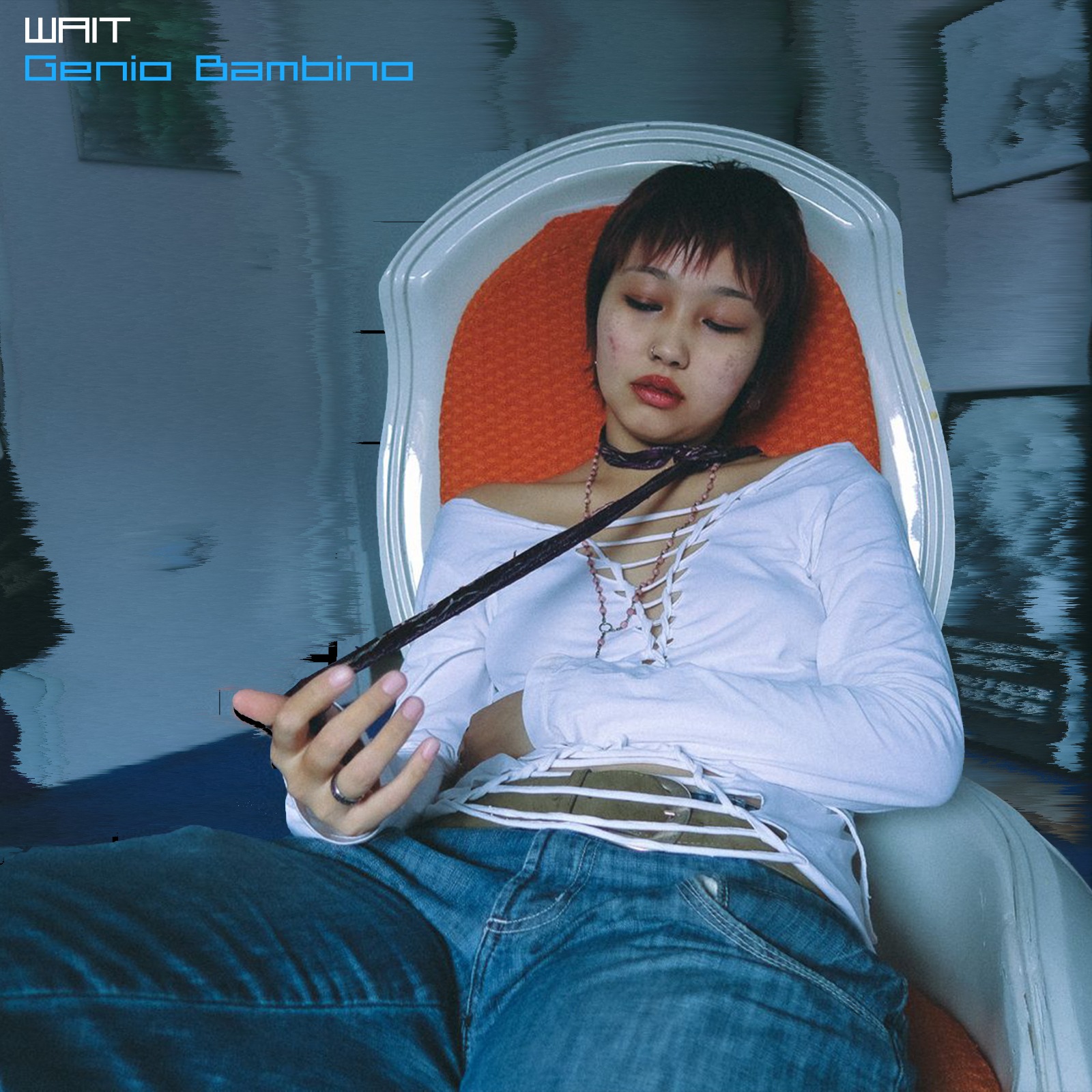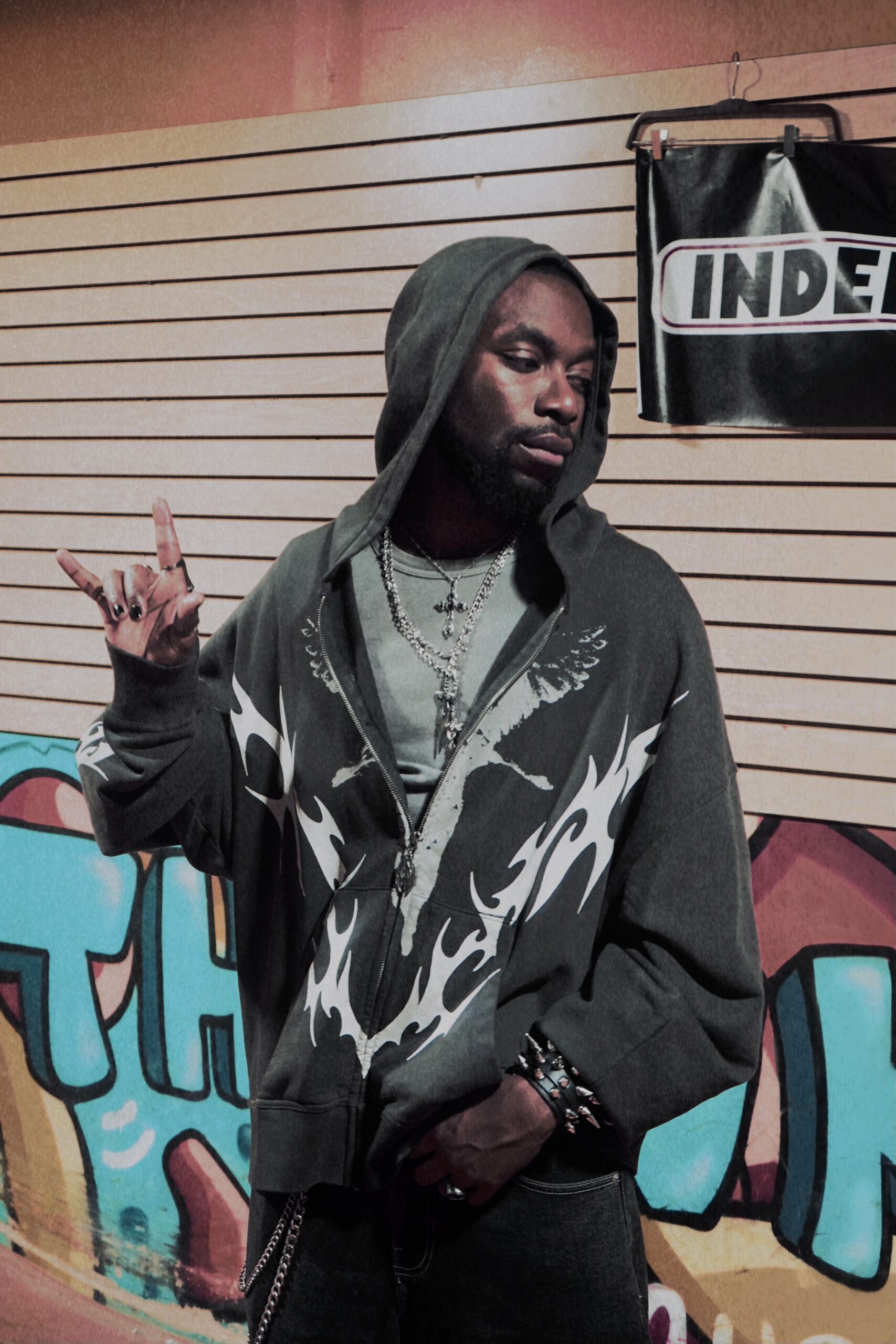Bomi Anifowose
If you grew up in Lagos, or any Southern Western part of Nigeria, that sprawling orchestra of gudugudu, dundun, congas, and sekere, hawkers, and hurried souls, you’ve heard Fuji even when you didn’t mean to. You heard it in the voice of the muezzin that rose before dawn, in the quarrels of mothers at Mile 12 market, in the metallic cry of bàtá drums that stitched the city’s morning together. Fuji transcends the branding of a music “genre”, Fuji is Yoruba culture speaking. Born from the ajisari chants of the 1960s, Fuji was the melody of the street: loud but wise, proud but prayerful, raw but poetic.
It is from this well of memory that Adekunle Gold tries to drink on his new album, Fuji, a project that stands as both homage and heresy, both echo and invention. The album does not tiptoe around its intent. It bursts open like oriki, proud of its name and of its bearer. It is jubilant, celebratory, and charged with the confidence of a man who has finally made peace with his many selves.
Adekunle Gold—“Big Fish,” as he now calls himself, has never sounded more certain of his artistry. Fuji is his most realized work yet: a confident stitching of past, present, and imagined future. It plays like a sonic pilgrimage, less a victory lap than a thanksgiving procession down the road that raised him.
The album opens with boast, as most Fuji elders would. Big Fish, Don Corleone, Bobo, and Coco Money throb with pride, wealth, and the hard-earned breath of success. But unlike the hollow flexes of modern pop stars, Adekunle’s braggadocio feels ancestral. There is lineage in his chest-thumping. His voice rings like that of the Fuji masters who sang their wealth as testimony, not arrogance. The drums here do not just accompany him, they validate him. His Bugatti, his real estate, his luxury are metaphors of survival, not conquest.
Then the storm of affluence softens. Believe, My Love is the Same, and Love is an Action slow the rhythm into tenderness. Here, Adekunle wears his heart with the same confidence he wore his gold chain. Believe, produced by longtime collaborator, Seyifunmi, unfurls over a faint hum of Billy Weathers’ “Just the Two of Us,” whispering nostalgia through soul. My Love is the Same glows like sunlight on his daughter’s face, a song soaked in fatherhood. Love is an Action, featuring 6lack, bends language into a cross-continental dialect of affection, proving that love is not bound by geography.
The middle of Fuji is where Adekunle Gold flexes his curatorial grace. Many People, with gospel tungba legend Yinka Ayefele, feels like a handshake between two priests of joy. Attack, featuring Cruel Santino, Mavo, and Tkay Maidza, is global and unrestrained, a sonic passport stamped by several continents. Only God Can Save Me, featuring Davido, is playful and risky, its musings on fidelity balancing on the line between art and irony, especially for a man whose wife engineers much of his music.
As the album deepens, Lailo and Oba return to Fuji’s exuberant pulse. Then comes Simile, the album’s most sacred moment, recorded in the shadow of his father’s death. The Soweto Gospel Choir’s choral wings lift the song to divinity. It is grief that has learned how to dance. I’m Not Done, with Robert Glasper, strips everything bare. His voice trembles here, not in fear, but in faith. Obimo, the final song, circles back to love, ending the album not with applause but with a quiet smile.
And yet, for all its brilliance, and it is brilliant, Adekunle Gold’s Fuji courts a paradox. Its name promises one thing; its sound delivers another. For the Fuji purist, the Alhaji Wasiu Ayinde loyalist, the Pasuma devotee, the die-hard of bàtá and sakara, Adekunle’s Fuji might feel like a mirage, a Western mirroring of a Yoruba masterpiece.
From its album cover, which dresses him in crimson robes and a Mexicanesque cowboy hat, to the American soul samples that seep into its core, one must ask: how Fuji is Fuji? Is the Fuji here in the drums? The call-and-response? The Yoruba proverbs? Or perhaps, only in Adekunle’s grainy, earth-deep voice.
This is where Adekunle Gold’s triumph meets its tension. His Fuji is glorious but slippery, reverent but detached. It flirts with cultural memory while flirting with the West. It does not reclaim Fuji in the way of Ayinde Barrister or Kollington Ayinla, it reinvents it for streaming playlists and global stages. The question, then, is not whether Adekunle Gold made a good Fuji album. He has made an excellent one- an Album of the year contender, in fact.The question is whether Fuji, as a genre and as a cultural mirror, survives the translation.
Still, to demand purity from an artist as exploratory as Adekunle Gold may be to miss the point entirely. His Fuji is less about mimicry and more about metamorphosis. It is not the Fuji of palm wine and sùrù lèrè, it is Fuji in diaspora. Fuji wearing Fenty. Fuji that has learned how to travel, how to dream, and how to sit comfortably beside jazz, soul, and pop.
In the end, Fuji is Adekunle Gold’s most complete album, but also his most complicated. It is both return and rebellion, both tribute and transgression. It is the Lagos street in conversation with Los Angeles luxury.
Maybe the purists are right. Maybe this isn’t Fuji as we know it. But perhaps that is precisely the point, Fuji is evolving, and Adekunle Gold is simply its most stylish messenger yet.
Album score: 8/10




